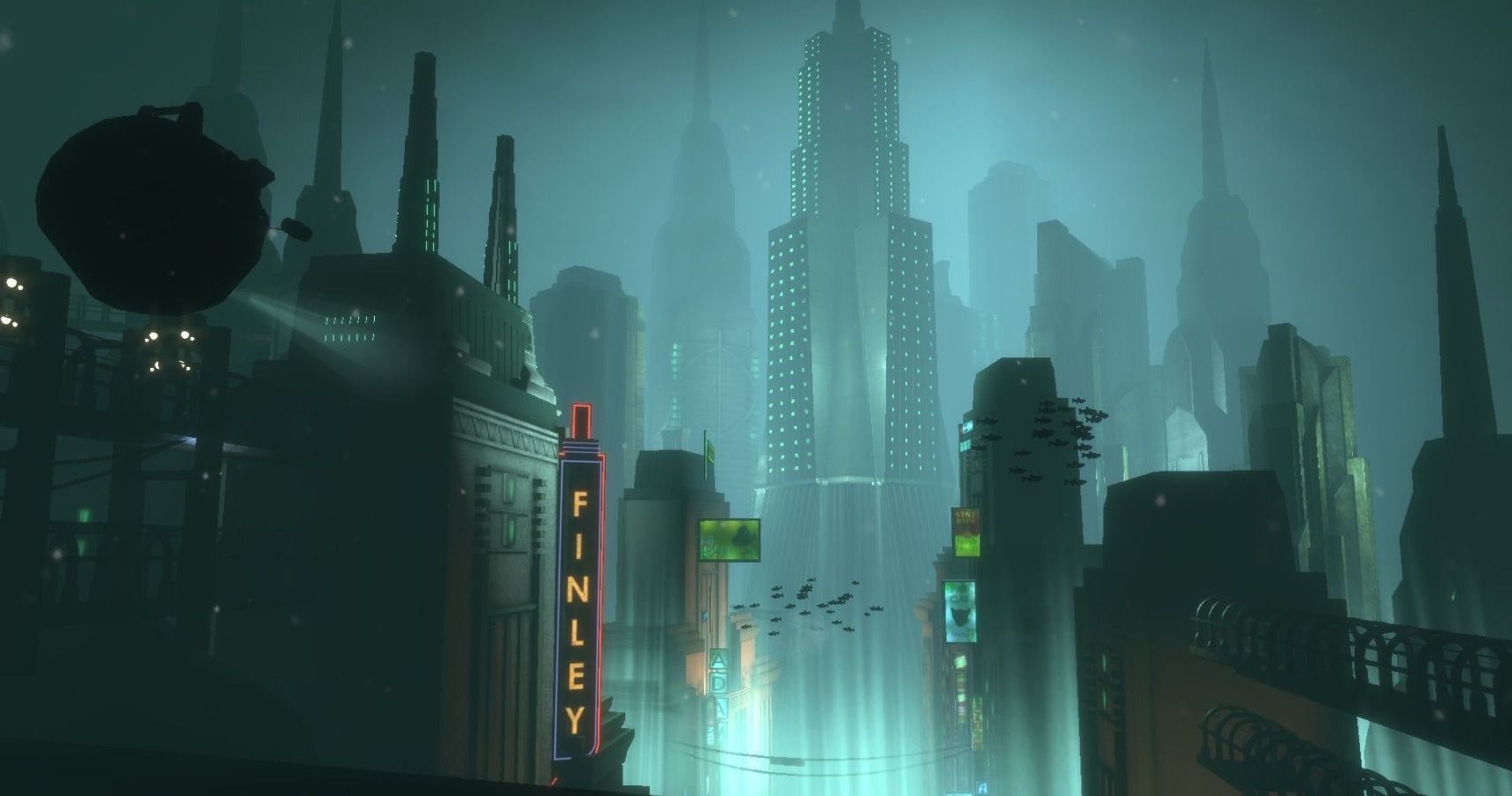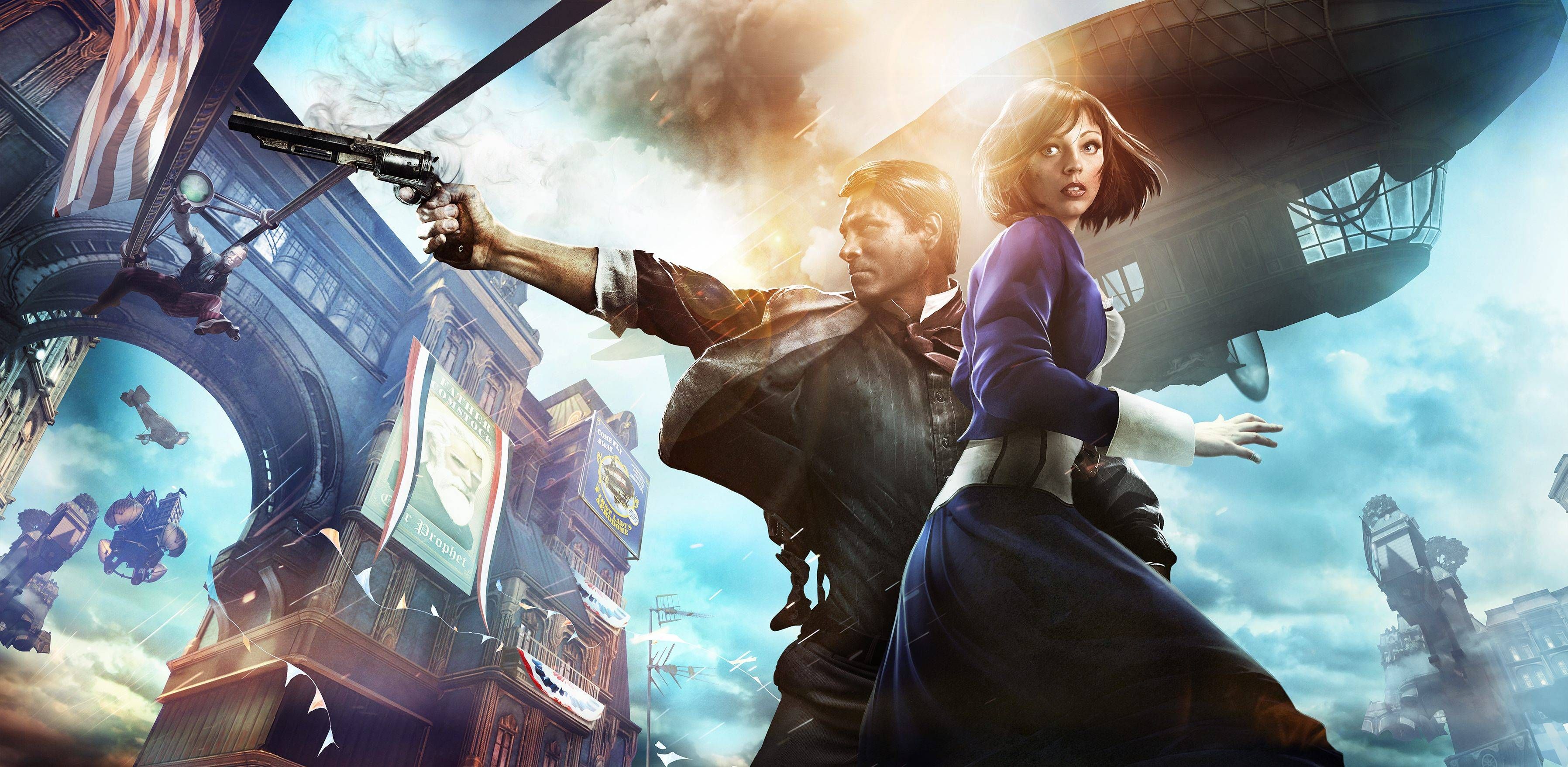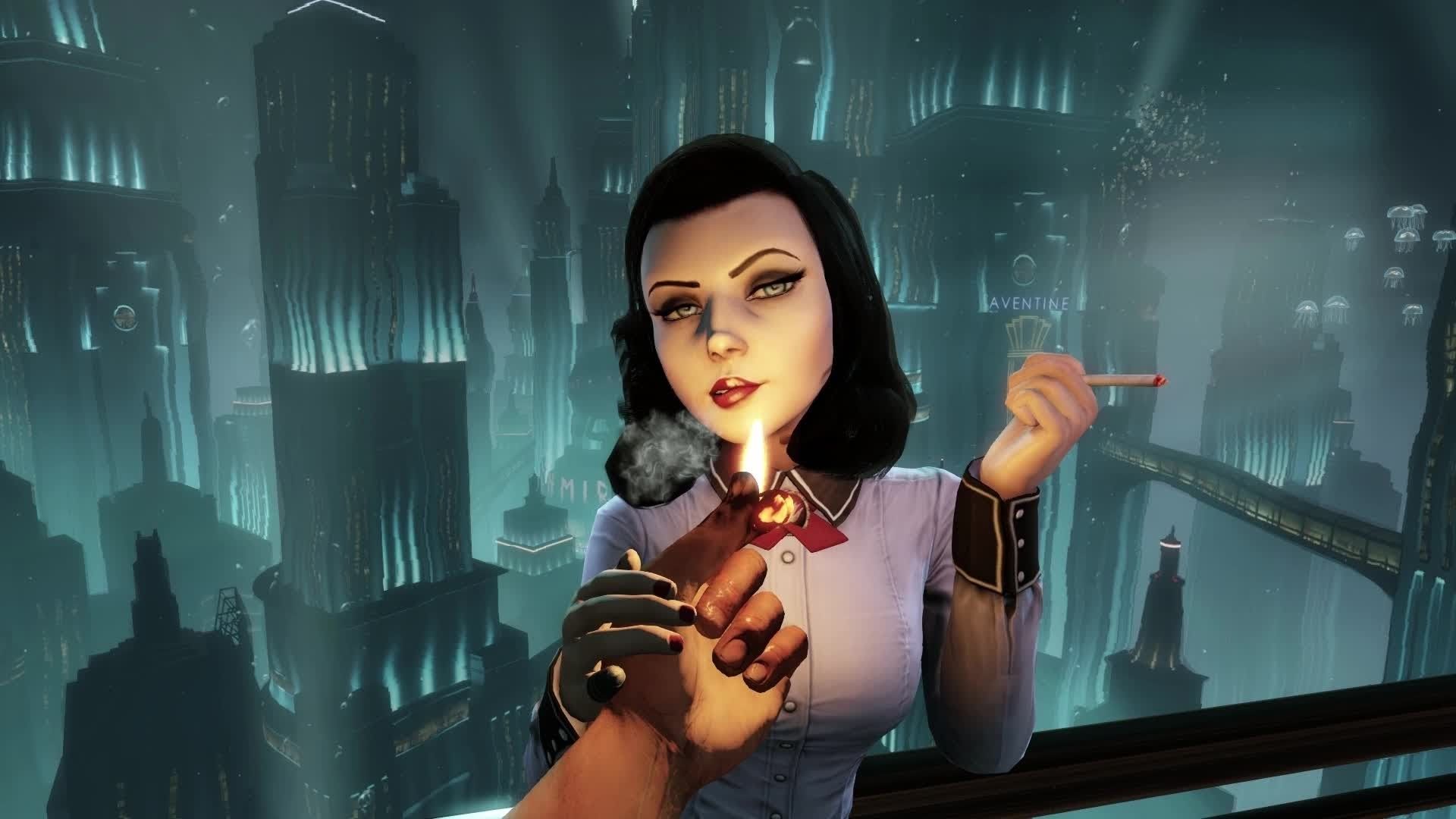Rapture is a beautiful place. It’s one of the most iconic locales in gaming, even if its view on philosophy and objectivism seems rather one-note all these years later. But it was groundbreaking at the time, and is still a poignant place to revisit even today. Irrational Games created a dark, layered utopia that had crumbled to ruin, leaving the player to explore its gutted carcass to uncover not only its premature downfall, but also their own reason for landing in this exact city at this exact time in history. Now, would you kindly keep reading this article to understand why the next BioShock needs to leave Rapture behind for good?
Burial at Sea, the exceptional two-part expansion for BioShock Infinite, took place entirely within Rapture, acting as a nostalgic revisit that permanently linked the events of all three games together. It retroactively improved the trilogy, allowing us to make sense of how certain moments played out and the impact they had on the wider metaverse. As Elizabeth once said, there’s always a lighthouse, with Rapture and Columbia being two of countless different possibilities the existence of these characters can take. It’s convoluted, but told with enough conviction that, at the time, it seemed like a storytelling marvel. Today, not so much.
Columbia has always been a mixture of quality to me. Its analysis on racism and the class divide seemed progressive in 2013, but today, the cracks begin to show very quickly. It’s difficult to engage with such heavy themes when you’re pulled into overlong gunfights that have you firing crows from your fingers every ten minutes. There’s rarely time to stop and breathe, with the narrative exploration only fumbling further as the campaign progresses. Daisy Fitzroy, the passionate revolutionary, is painted as a villain once she begins fighting back against her oppressors, with Booker DeWitt playing the centrist by stating there are bad people on both sides. Bet this dude would have a shit podcast in 2021.
It’s a tiresome look into themes that could have been handled so much better, but I can admire Ken Levine’s enthusiasm to delve into such ideas, especially in a genre that seldom concerned itself with such deep questions. But it was still a shooter, more so than BioShock has ever been, so its storytelling fell to the wayside and never received the love it deserved to help it shine. Burial at Sea changed all that giving equal roles to both Booker and Elizabeth as playable protagonists. The story has more room to breathe, combat taking a backseat to exploration of wider spaces with important tales to share.
Obviously you’ll still need to take part in several firefights, but they feel more natural in Rapture, a city that is already surrendering itself to depravity in decay. Columbia was still a place people called home, so seeing its entire populace disappear without a trace felt jarring, like the whole game transpired amidst a racist theme park in the sky. I mean, it kinda did, but you see what I mean. Burial at Sea sees Irrational learn from its mistakes, taking the best parts of the Infinite and removing the tonal missteps that held it back from being something special.
The story here is brilliantly told, acting as both an independent adventure for Booker and Elizabeth while also splicing in beloved locations and characters from the original Bioshock in a way that doesn’t feel like shameless fanservice. This isn’t The Force Awakens - Irrational doesn’t just want to take us on a quick ride through the original game’s finest moments before calling it a day. Quite the opposite - Elizabeth feels like she belongs in the conspiracy-laden intrigue that plagues Rapture in the early days of its fall from grace.
Seeing events that were once only audio logs in BioShock being translated into fully featured moments that you yourself are witness to was a revelation to me, subverting player expectations and making the world of Rapture feel so much more alive as a result. I didn’t feel cheated, or that Irrational had taken a story I hold dear to my heart only to twist into something needlessly modern. Instead, it makes the BioShock franchise stronger, tying things up with a neat little bow before the credits roll.
It’s this perfect resolution that makes a revisit to Rapture completely unnecessary. Its tale has been told, and Cloud Chamber Studio returning to the locale that started it all would be a disservice to everything that came before. A novel take on Rapture is definitely possible, but I’m tired of the things I love constantly relying on the past. BioShock is a franchise that can be moulded to fit any setting. With competent enough writing, you could throw us into space, the deep underground, or even a zoo. It all works, with Rapture and Columbia already proving such malleability is possible.
Returning to old haunts would work best for a wider audience when it comes to an established franchise, but it’s also the easy way out, reflective of a property that isn’t willing to take risks or explore something new. While it’s a shooter at heart, BioShock has proven on several occasions that it is capable of so much, so let's give this new entry a chance to reach for the skies. Just don’t stop at Columbia on the way...



